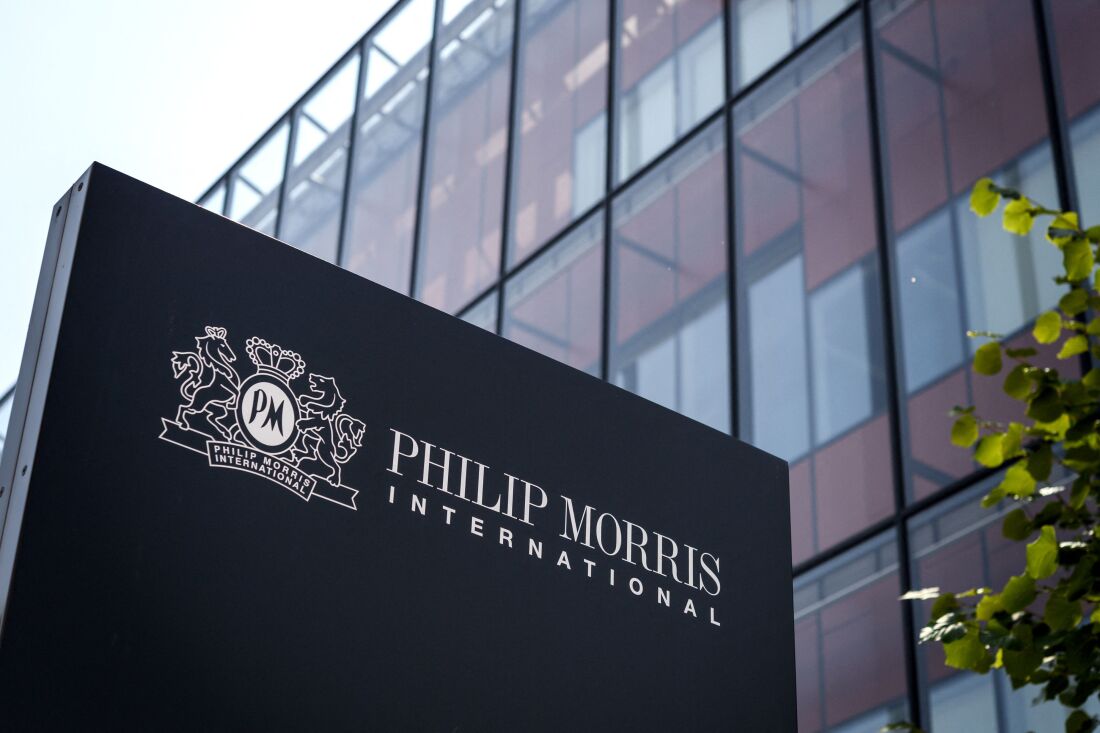
Cigarette and tobacco company Philip Morris International is selling Vectura, a British pharmaceutical firm that makes asthma inhalers. An office of the company is seen here in Neuchatel, western Switzerland.
FABRICE COFFRINI/AFP via Getty Images/AFP
hide caption
toggle caption
FABRICE COFFRINI/AFP via Getty Images/AFP
Three years after raising health groups’ suspicions by acquiring Vectura, a British pharmaceutical firm that makes asthma inhalers, cigarette giant Philip Morris International has made a deal to sell off the inhaler business.
Philip Morris says that under its corporate umbrella, the asthma inhaler business was hindered by “unwarranted opposition to PMI’s transformation” from a Big Tobacco stalwart into a broadly based health company. Health groups have met this stated goal with skepticism.
The maker of Marlboro cigarettes is selling Vectura to Molex Asia Holdings Ltd., which plans to operate the inhaler business as part of its Phillips Medisize unit, which produces drugs and medical devices.
The two-part sale includes an upfront cash payment of 150 million pounds sterling—around $200 million, at Friday’s exchange rate. The deal also calls for “potential deferred payments” of a second, nearly equal amount. The deal is expected to close by the end of 2024 if it gains regulatory approvals.
Philip Morris bought Vectura in a deal valued at $1.2 billion in 2021, snatching it away from a rival bidder: the Carlyle Group private equity firm.
The sale comes three months after the Royal Pharmaceutical Society’s official journal in the U.K. reported that, since Philip Morris’ purchase of Vectura, the National Health Service (NHS) in England “has spent more than £433m [$576 million] on inhalers with links to the tobacco industry.”
That information was derided by health groups in the U.K., where Vectura is based — many of whom had protested the cigarette maker’s acquisition of the asthma inhaler company. Critics of the deal noted that Philip Morris was taking over a business that made the lion’s share of its hundreds of millions of dollars in annual revenue from products meant to treat smoking-related respiratory illnesses, such as chronic obstructive pulmonary disease.
“It was right that Philip Morris’s takeover of Vectura was widely condemned by health charities,” Henry Gregg, director of external affairs at Asthma + Lung UK, said in a statement to NPR. “Addictive tobacco products cause and exacerbate lung diseases and smoking-related illnesses cost the NHS £2.5 billion every year. It’s not yet clear if Philip Morris will continue to profit from the sale of inhalers, but the tobacco industry should not be allowed to profit from the illnesses that it causes.”
Noting Philip Morris’ legacy of making products linked to deadly diseases, Daniel Dorado, tobacco campaign director at the advocacy group Corporate Accountability, vowed that his organization and others “will not be fooled by [the company’s] attempts to clean up its image.”
Philip Morris says it will retain some Vectura units as a separate company under its Vectura Fertin Pharma subsidiary. The business will get “a new corporate identity,” Philips Morris said, adding that it will focus on “oral consumer health and wellness offerings and inhaled prescription products for therapy areas that include pain management and cardiovascular emergencies.”
Molex says the acquisition is expected to close by the end of 2024, subject to regulatory approvals.
